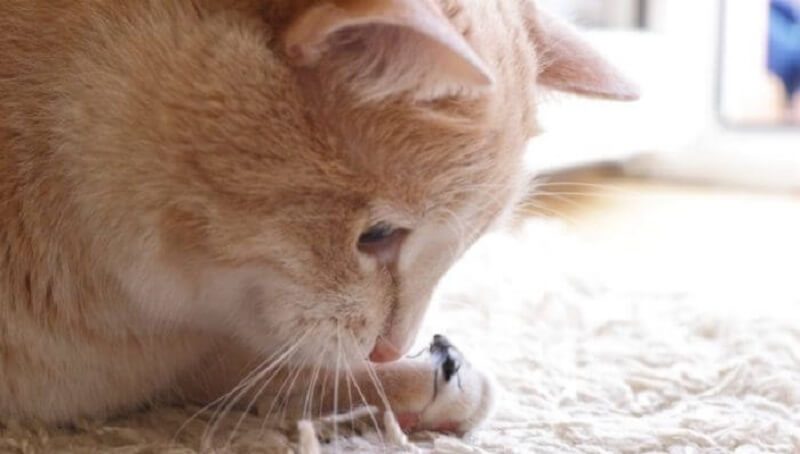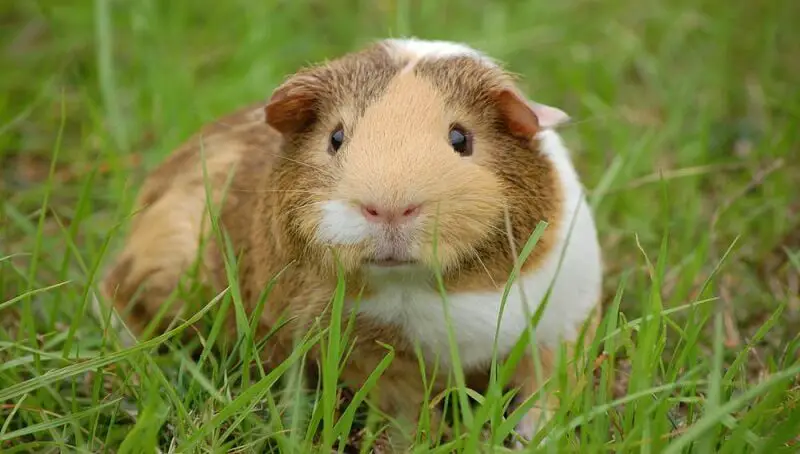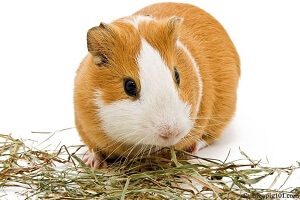
Can Dogs Have Insomnia?
January 19, 2023
Cat Ate a Fly – What to Do?
January 20, 2023
Calcium is an essential mineral for many important functions in the body of an animal. It is necessary for the development of the fetal skeleton, as well as for the secretion of milk in lactating females. Calcium deficiency, hypocalcemia, in guinea pigs is more pronounced in pregnant and lactating females when their increased nutritional needs are not being met. This associated type of calcium deficiency usually develops 1-2 weeks before birth or shortly after birth. Increased risk also includes obese or stressed guinea pigs or females who have given birth to offspring several times.
The symptoms of guinea pigs suffering from calcium deficiency are very similar to those present in pregnant toxemia. This is a significant condition that is characterized by the presence in the blood of toxic substances, usually bacterial. The only difference between the two conditions is that the symptoms of pregnancy toxemia are more severe than hypocalcemia, and the result is more prone to fatality.
Symptoms and types
Calcium deficiency in guinea pigs usually occurs in females 1-2 weeks before birth or shortly after birth.
Symptoms associated with calcium deficiency include:
- dehydration
- depression
- loss of appetite
- muscle spasms
- convulsions
However, some guinea pigs may die suddenly without showing any obvious symptoms.
Causes
You might also like my articles about:
Calcium deficiency occurs in obese, stressed guinea pigs, or in females who have given birth several times. In pregnant females, calcium deficiency is due to additional nutrients needed for the birth process and subsequent breastfeeding routine.
Diagnostics
You will need to provide your veterinarian with a detailed history of the health of your pet, the onset of symptoms, and possible incidents that could have led to this condition like previous pregnancies, recent illnesses, or food history. The veterinarian will then make an initial diagnosis. They will take into account the symptoms presented and the current physical condition of your guinea pig.
If pregnancy toxemia is suspected, a differential diagnosis may be required. This process is guided by a deeper inspection of the apparent external symptoms, excluding each of the more common causes until the correct disorder is established and can be treated appropriately. To confirm the diagnosis, your veterinarian will test the calcium level in your pet’s blood.
Treatment
Calcium deficiency is easily remedied with dietary supplements. Consult with your veterinarian about the types of supplements and the dosage needed.
Recovery and lifestyle
Make sure the guinea pig is fed a nutritious and well-balanced diet. In addition, it should receive the vitamin and mineral supplements that your veterinarian has prescribed.
Proper nutrition
 However, the diet of the guinea pig is not based exclusively on ready-made food. Hay should be mandatory in its diet, and grass as well. It is rich in calcium and is a great fresh food for guinea pigs. Give it a portion of fresh plants every day, thanks to which you complete the animal’s diet with the necessary vitamins. The greenery of different types is also a solution in regulating the activity of the sensitive digestive system of the guinea pig. Guinea pigs also love fruits, apples, or pears. However, you need to be careful, because they contain a lot of sugar, and too much of them can be harmful to the animal. Fruits should only be a supplement to the diet of guinea pigs and not be the basis of it. Healthy and completely safe treats for guinea pigs include:
However, the diet of the guinea pig is not based exclusively on ready-made food. Hay should be mandatory in its diet, and grass as well. It is rich in calcium and is a great fresh food for guinea pigs. Give it a portion of fresh plants every day, thanks to which you complete the animal’s diet with the necessary vitamins. The greenery of different types is also a solution in regulating the activity of the sensitive digestive system of the guinea pig. Guinea pigs also love fruits, apples, or pears. However, you need to be careful, because they contain a lot of sugar, and too much of them can be harmful to the animal. Fruits should only be a supplement to the diet of guinea pigs and not be the basis of it. Healthy and completely safe treats for guinea pigs include:
- lettuce
- carrot
- broccoli
- spinaches
- tomatoes
- beetroot
- cucumbers
- turnip
- celery
- peppers
- parsley
- radish leaves
Prevention
To prevent calcium deficiency, it is advisable to feed your pet only with high-quality commercial food for guinea pigs. Pregnant and breastfeeding females require diets that are specifically formulated for their nutritional needs.
Guinea pigs should mainly eat fresh, unprocessed foods with an appropriate vitamin and mineral content. Do not feed them old, rotten vegetables, because the digestive system of these animals is extremely sensitive and such a diet can very quickly lead to serious health problems. For the same reason, you don’t have to drastically change its diet.
It is best to feed them three times a day at fixed hours. It happens that the habit of constant eating time manifests itself through a characteristic grin when the time of the meal approaches. You should not forget about the constant access to the fresh water of the guinea pig.
If the deficiency is long-term or occurs outside of pregnancy and/or breastfeeding, it may be necessary to continue regular dietary supplements to prevent calcium deficiency from becoming a serious problem.
